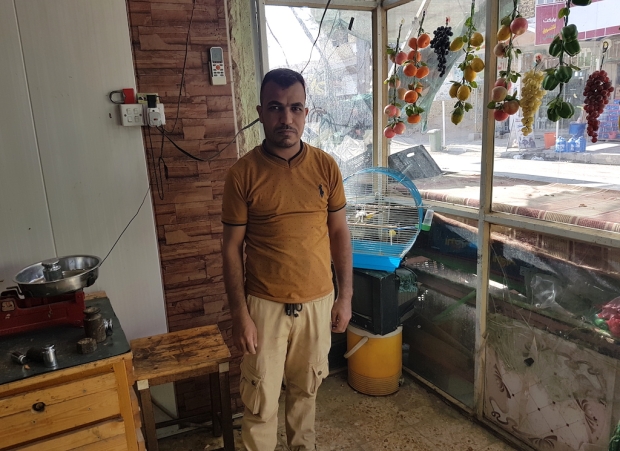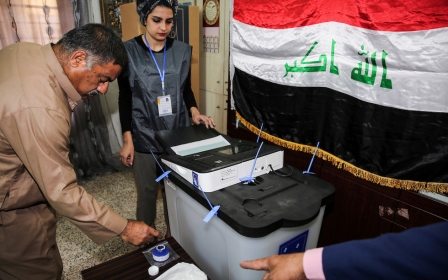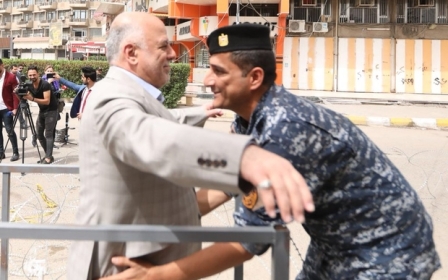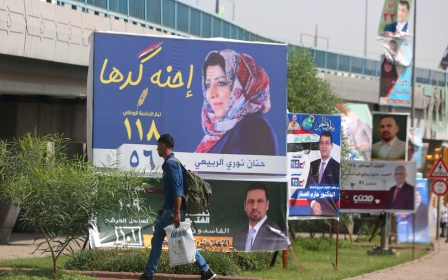Iraq elections: Voters in poverty-stricken region reject 'same faces' at polls
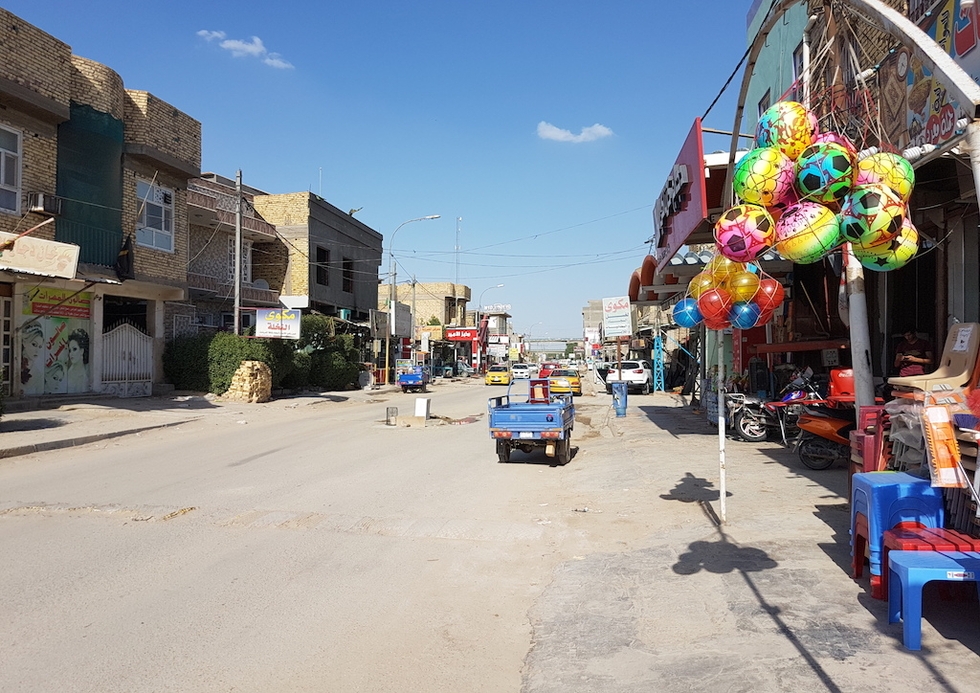
DIWANIYAH, Iraq - By all accounts, Saturday's election in Iraq was something of a damp squib. The much-hailed first elections after the defeat of the Islamic State group saw a 44.5 percent voter turnout - not too bad compared with some European democracies, but a serious drop in light of previous Iraqi elections. In the capital Baghdad, the final voter turnout was estimated at 33 percent.
Analysts have scrambled to make sense of the results - some have suggested that conditions on the day, including a ban on the use of cars, made it unfavourable, especially to older voters. Others have pointed to uninspiring election campaigns by the candidates. Many have attributed it to the success of a boycott campaign launched online before the election.
The major issue appears to have been the fact that the candidates claiming they would clamp down on Iraq's many ills - unemployment, corruption, unstable security - were the same people largely responsible for those problems.
In Diwaniyah in southern Iraq, about 180km south of Baghdad, the turnout was near the lowest in the country, with less than a quarter of registered voters having cast ballots by the afternoon of the election.
The city of 440,000 residents suffers from many of the problems that blight Iraq - rubbish is strewn across the streets and pavements, while infrastructure is cracked and in disrepair.
But few say that Baghdad is likely to provide a solution to these problems as long as the same people who have ruled the country since 2003 remain in power.
"I didn't believe in this election," said Mustafa, 21, a convenience store worker who boycotted the voting. "They are the same politicians, the same faces. I know people in many places who just refused to vote for the same reasons as me.
"They changed the hat but the head stayed the same - even though we had new faces, new politicians, the heads of the political blocs were the same. Even the new people are going to follow the agenda of the leaders."
Diwaniyah, a mostly agricultural region, was hit by a drought in April that had a devastating effects on crops.
Reportedly, about 80 percent of the province's agriculture depends on generators and pumps to draw water.
We don't have elite representatives in the Iraqi parliament - even if we have some seats in the Iraqi parliament, they do not represent Diwaniyah in any real way
- Jafar Almouswy, local council member
When he visited Diwaniyah last month on the campaign trail, Prime Minister Haider al-Abadi promised he would begin his new tenure by restoring services and rebuilding infrastructure.
But his words have apparently rung hollow.
"Diwaniyah is the second-poorest province in Iraq," said Jafar Almouswy, chief of the services committee on Diwaniyah's local council.
"Most people here are farmers, they depend on the farmers for living. So focusing on this point, the amount of water here is becoming less and less. Added to that, we have problems with infrastructure, the sewage system, the road system. Sewage is exposed and enters the river water, and this is going to make big problems for health and the environment.
"We have a 60 percent lack of infrastructure compared with other provinces."
Almouswy, a supporter of an independent candidate in the elections, blamed austerity measures imposed by Abadi for the area's myriad problems, and also attributed the poor turnout to the same cast of characters being once again presented to voters.
"We don't have elite representatives in the Iraqi parliament - even if we have some seats in the Iraqi parliament, they do not represent Diwaniyah in any real way."
'The same people'
Prior to the elections, Iraq’s top Shia cleric, Ali Sistani, instructed followers not to support previously failing politicians, which - considering the wide range of familiar faces on display - some took as possible support for not voting. Unlike in previous elections, he gave no instruction to his followers to vote.
Aside from Abadi's Nasr Coalition, the Al-Wataniya coalition is fronted by former prime minister Iyad Allawi, the State of Law coalition is fronted by another former prime minister, Nouri al-Maliki, and the Fatah Coalition is fronted by paramilitary leader Hadi al-Ameri.
Many of those who voted expressed contempt for the political class in Baghdad.
"They're still the same people, the same politicians, there's no change," said Jassim, 41, a store owner.
Still, he added that "refusing voting is not a solution".
He cited the road surfaces, trash collection, the sewage system, electricity, infrastructure and the water system among his most pressing issues for Diwaniyah.
"They are the government," he said. "Who else is going to fix this situation? This is their duty, to help people."
Wassam, a 30-year-old shop owner, said he had taken Sistani's words to heart and ended up voting for the Sairoun Alliance, backed by Shia cleric Muqtada al-Sadr. Unlike the other parties, the Sairoun Alliance is made up largely of new faces.
"[Sistani said] the old people, we can't re-elect them again, the corrupted people, we can't elect them again," he said.
Still, he said many others are simply sick of the process.
"Most people out there think the government will be the same - even if they have some new people, new members, the heads of the political blocs will stay the same."
The final results are expected on Monday. Preliminary results indicate a strong showing for the Nasr Coalition and the anti-establishment Sairoun Alliance. But with so few actually taking part in the elections - compared with 80 percent in 2005 - it may prove a Pyrrhic victory for whoever comes out on top.
Middle East Eye propose une couverture et une analyse indépendantes et incomparables du Moyen-Orient, de l’Afrique du Nord et d’autres régions du monde. Pour en savoir plus sur la reprise de ce contenu et les frais qui s’appliquent, veuillez remplir ce formulaire [en anglais]. Pour en savoir plus sur MEE, cliquez ici [en anglais].



